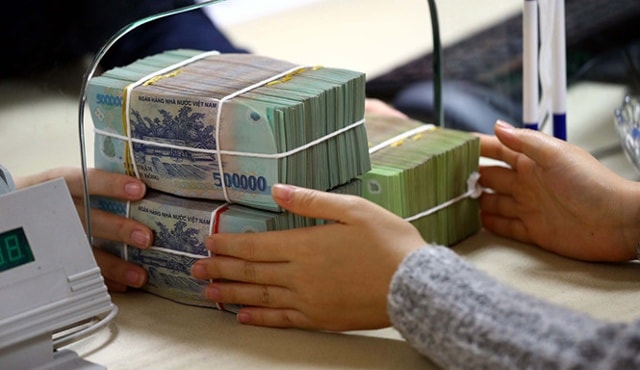National Assembly agrees to bankrupt weak banks
Banks that have been acquired for 0 VND or are under temporary special control will still follow the old approved plan.
With 88.8% approval rate on the afternoon of November 20, the National Assembly officially passed the Law amending and supplementing a number of articles of the amended Law on Credit Institutions. Accordingly, this law has added a plan to restructure credit institutions under special control, including recovery plans; mergers, consolidations, transfer of all shares, capital contributions, compulsory transfers... banks that are too weak will be allowed to go bankrupt.
The amended law takes effect from January 15, 2018. However, banks that have been under special control and are implementing the handling plan and banks that were previously acquired at zero dong will continue to follow the approved plan.
 |
Previously, answering questions from the National Assembly on November 17 about the issue of bank bankruptcy, Governor Le Minh Hung affirmed,In any case, the solutions to handle credit institutions must prioritize the safety of the system, strengthen people's confidence in the banking system, ensure the legitimate rights and interests of depositors and prevent uncontrolled collapse. "Thus, the consistent goal in the direction of the Party and the State must be to ensure the rights and interests of depositors," he said.
In his report explaining and accepting the previous draft Law amendment, Mr. Vu Hong Thanh - Chairman of the National Assembly's Economic Committee said that through discussions in groups and halls, some opinions suggested that the State must play the role of the final buyer for weak banks under special control. However, through examination, the National Assembly Standing Committee found that the draft Law had added a compulsory transfer plan and stipulated a number of support measures when implementing this plan. In essence, these plans are to give credit institutions more opportunities to recover.
"In case the compulsory transfer plan cannot be implemented, the strength of the weak banks is too 'weak'. If the State buys them back, it will create burdens and risks, which is not in accordance with market rules," said Mr. Thanh.
In response to the opinion that the regulation giving the Government the authority to handle the situation during the special control period is inappropriate because the process may be lengthy and complicated..., the National Assembly Standing Committee said,Most cases of handling specially controlled banks fall under the authority of the Prime Minister and the State Bank.
"The implementation of bankruptcy, dissolution, and compulsory transfer plans of specially controlled banks is likely to have a major impact on system safety and social order and safety, so it is necessary to assign the authority to decide on the application and approval policy to the Government so that the review and decision process can be carefully considered and comprehensive," the National Assembly's standing body stated its opinion.
The agency also said that,The most important purpose of supporting the restructuring of weak banks is to stabilize and prevent the system from collapsing. Therefore, it is not necessary to require the calculation of the repayment of capital costs that have been supported for specially controlled banks after 5-7 years as many National Assembly deputies have previously stated.
According to VNE
| RELATED NEWS |
|---|

